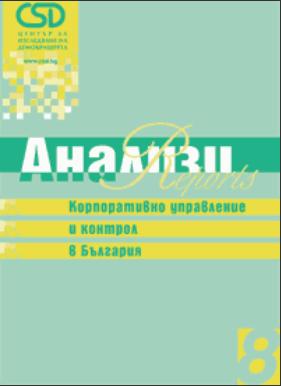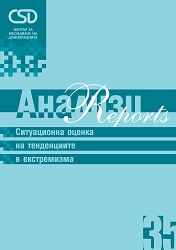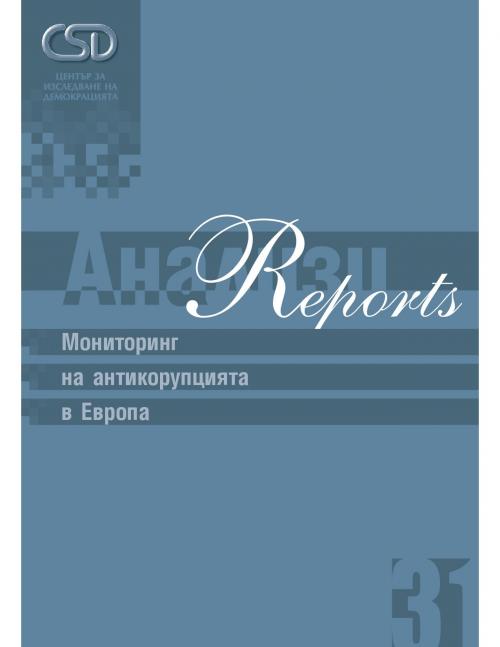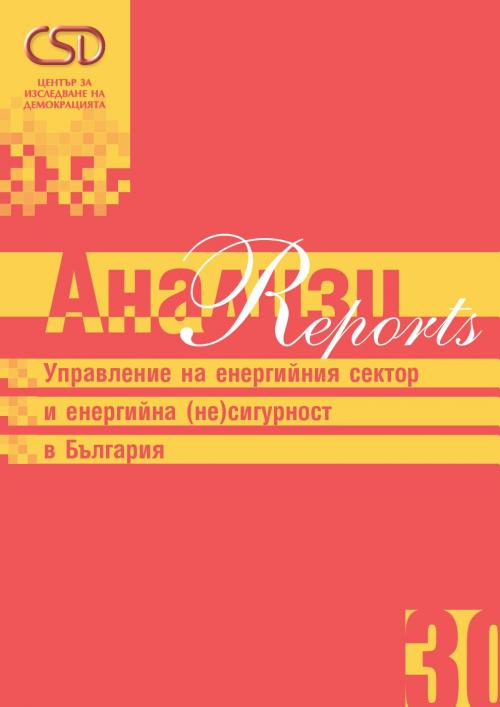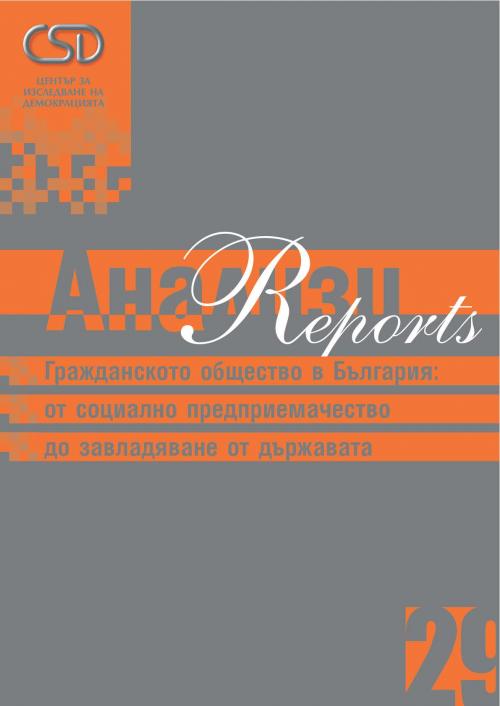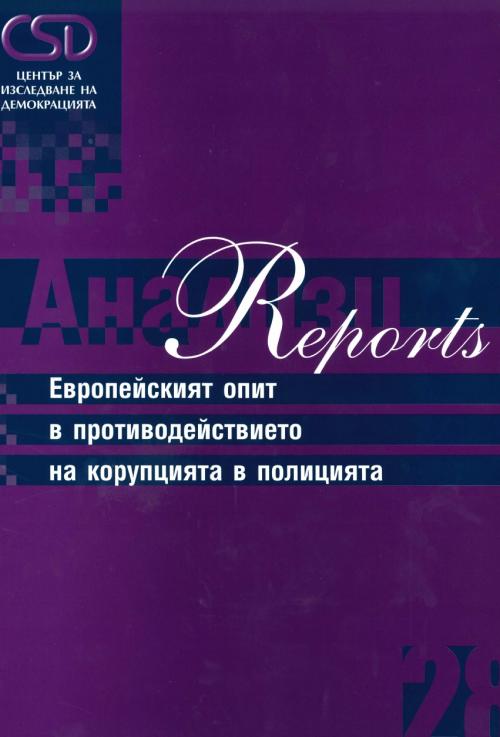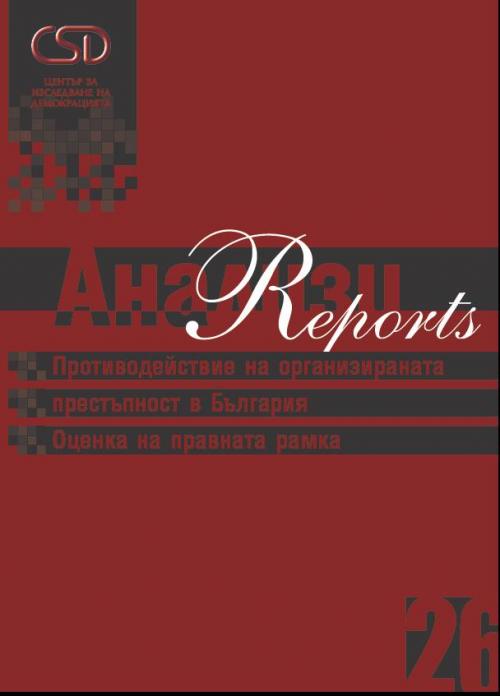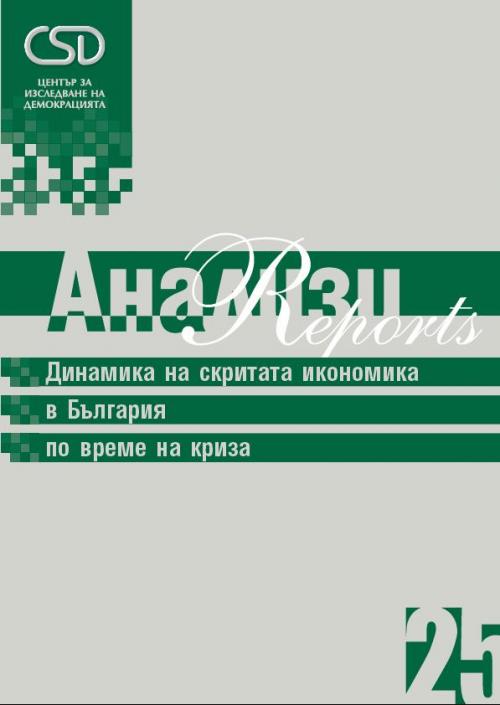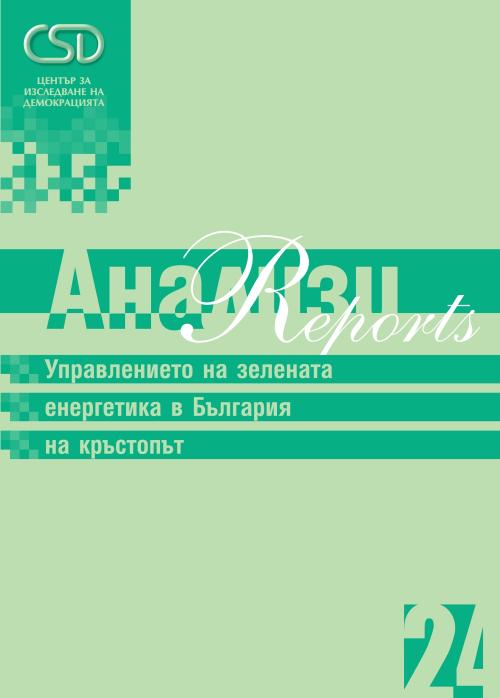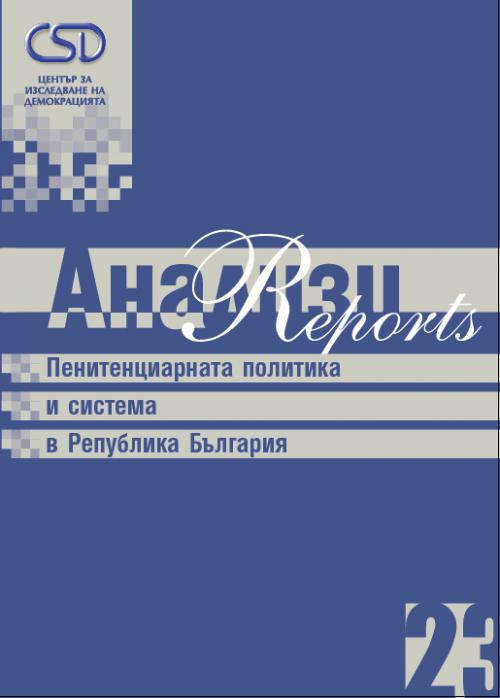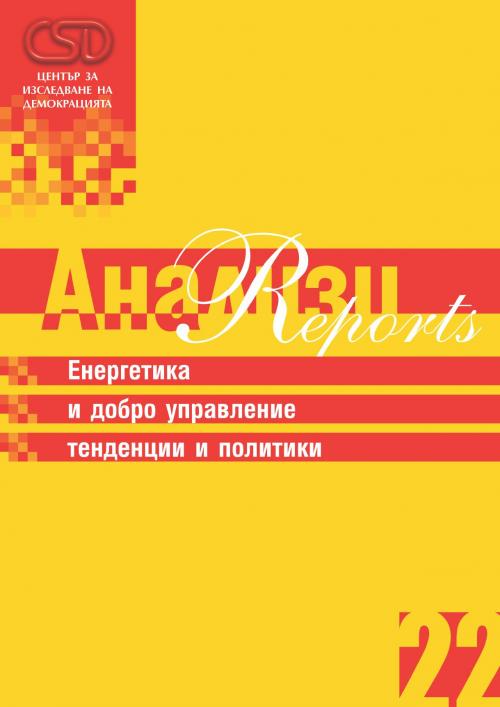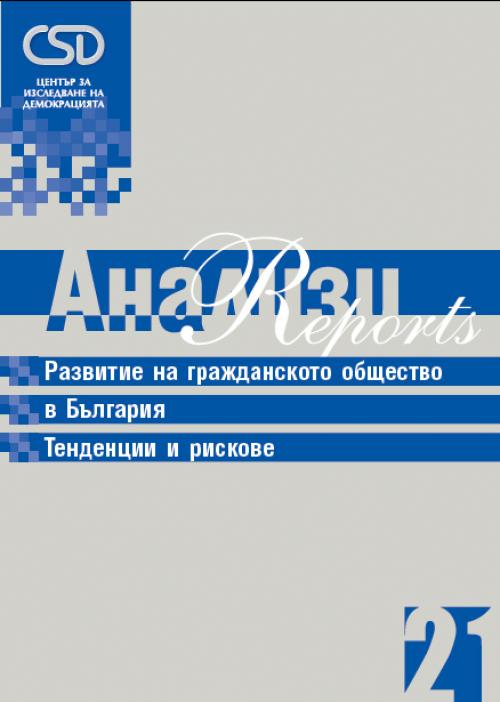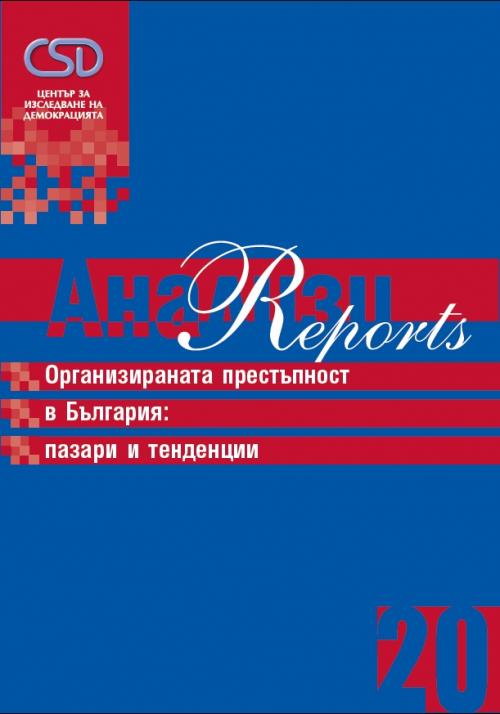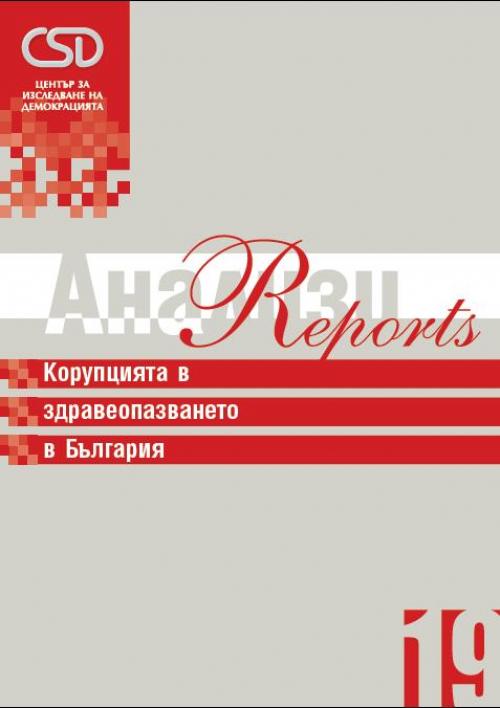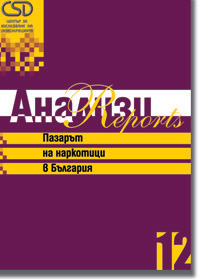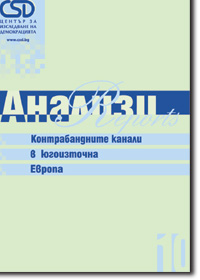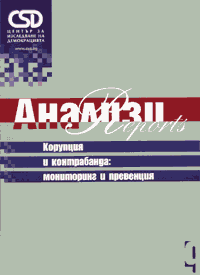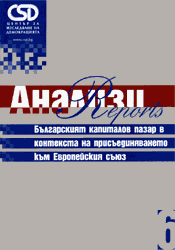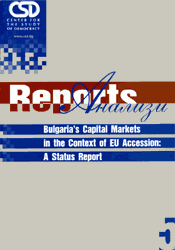
CSD-Report 05 - Bulgaria’s Capital Markets in the Context of EU Accession: A Status Report
CSD-Report 05 - Bulgaria’s Capital Markets in the Context of EU Accession: A Status Report
The objective of this report is to contribute to the discussion on the capital market reform in Bulgaria in preparation for eventual integration into the European Union. The report views the accession issue on two levels. The first one is whether the necessary capital market institutions and legislation are in place, while the second one is whether capital markets function in a manner that supports economic growth and development. The impetus for the development of the capital markets in Bulgaria was the first wave of the mass privatization program. This program was similar to the program implemented earlier in the Czech Republic. At the same time the Czech Republic is among the first countries in transition that has been invited to negotiate accession with the European Union. For these reasons it is useful to compare the process of capital market developments in both countries. However, it should be taken into consideration that because of the problems that have surfaced recently in the Czech capital markets, the Czech example does not necessarily furnish solutions to the problems that are likely to arise. A large number of the companies are listed on the Bulgarian Stock Exchange-Sofia, but in practice the majority of the smaller ones have not been traded at all. While the unadjusted market capitalization figure amounts to roughly 0 million, this includes all investment funds, holding companies and all shares in partially privatized state owned companies. The actual figure for shares not held by the Government and available for trading on the BSE-Sofia is probably closer to 5 million. This works out to 1 per participant in the mass privatization program, which is a little above one-month’s salary. The market also has very low levels of turnover. Turnover figures at the individual company level are available only for trades on the BSE-Sofia. Most company shares have been traded very few times since the stock market opened. Only eight companies have traded shares in more than half of the sessions for which they were registered.
More...
